death camps
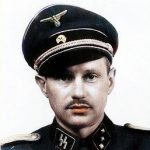 When most people hear the word Nazi, they don’t associate it with anything good. I don’t even think the Nazis of today consider themselves to be an organization for good. Probably the most atrocious part of Nazi Germany was the death camps where the Jewish people were confined, tortured with experimentation, and gassed to their deaths. One such camp, Auschwitz was known for cruelty so egregious that in 1947, after the war was over, a Polish court convened a special tribunal to mete out justice to 40 former Auschwitz personnel.
When most people hear the word Nazi, they don’t associate it with anything good. I don’t even think the Nazis of today consider themselves to be an organization for good. Probably the most atrocious part of Nazi Germany was the death camps where the Jewish people were confined, tortured with experimentation, and gassed to their deaths. One such camp, Auschwitz was known for cruelty so egregious that in 1947, after the war was over, a Polish court convened a special tribunal to mete out justice to 40 former Auschwitz personnel.
The German invasion of Poland in September 1939, sparked World War II, and the Germans immediately converted Auschwitz I, a former army barracks, to hold Polish political prisoners. The first prisoners, German criminals brought to the camp as functionaries, arrived in May 1940, and the first gassing of prisoners took place in block 11 of Auschwitz I in September 1941. Auschwitz II–Birkenau went on to become a major site of the Nazis’ “Final Solution” to the Jewish Question…basically Hitler’s hatred of the Jewish people. Transport trains delivered Jews from all over German-occupied Europe to the camp’s gas chambers from early 1942 until late 1944. Of the estimated 1.3 million people sent to Auschwitz, at least 1.1 million died, approximately 90% of them Jews. It is thoughts that  one in six Jews killed in the Holocaust died at Auschwitz. Others deported to Auschwitz included 150,000 non-Jewish Poles, 23,000 Roma, 15,000 Soviet prisoners of war, 400 Jehovah’s Witnesses, tens of thousands of others of diverse nationalities, and an unknown number of gay men. Many of those not killed in the gas chambers died because of starvation, forced labor, infectious diseases, individual executions, and medical experiments.
one in six Jews killed in the Holocaust died at Auschwitz. Others deported to Auschwitz included 150,000 non-Jewish Poles, 23,000 Roma, 15,000 Soviet prisoners of war, 400 Jehovah’s Witnesses, tens of thousands of others of diverse nationalities, and an unknown number of gay men. Many of those not killed in the gas chambers died because of starvation, forced labor, infectious diseases, individual executions, and medical experiments.
The appalling conduct of the Nazi staff at Auschwitz is among the worst treatment of prisoners in human history. In fact, the cruelty routinely perpetrated was so horrific that, in 1947, a Polish court convened a special tribunal to finally deal out justice to 40 former Auschwitz personnel. Of the defendants, 21 were condemned and executed, 18 were convicted and given jail sentences, but one man, Dr Hans Munch, was acquitted. That one acquittal might have been considered an outrage to the world, were it not for the testimony of former prisoners. The former prisoners testified that Munch had been kind and humane. The said that he gave them food and extended bogus experiments on female prisoners because he knew they would be gassed once the 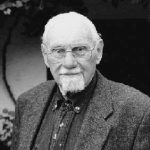 experiments were concluded. Most impressive, Munch refused to participate in the selection process dictating who lived or died at Auschwitz. That in and of itself could have brought about his own death. In the final days of the war, his last official act at a concentration camp was to advise an inmate on how to escape, wish him good luck, and hand the prisoner his service revolver.
experiments were concluded. Most impressive, Munch refused to participate in the selection process dictating who lived or died at Auschwitz. That in and of itself could have brought about his own death. In the final days of the war, his last official act at a concentration camp was to advise an inmate on how to escape, wish him good luck, and hand the prisoner his service revolver.
Sadly, in later life, Munch was diagnosed with Alzheimer’s Disease, ignited a controversy later in his life with bizarre interviews about his tenure at Auschwitz. He got quite mixed up about what went on there, and in my opinion, it is a good thing that the prisoners stood up for this one good Nazi, who wasn’t really a Nazi after all.
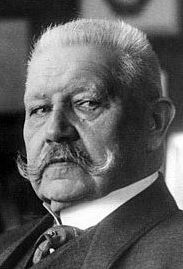
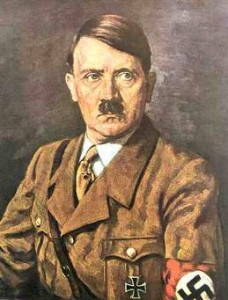 On January 30, 1933, President Hindenburg appointed Adolf Hitler chancellor of Germany. It wasn’t because of any election, but rather by a constitutionally questionable deal dreamed up by a small group of conservative German politicians who had given up on parliamentary rule. Little did they know that they were party to appointing one of the worst dictators in history. Their attempt to return Germany to conservative authoritarian rule, backfired miserably when, within two years, Hitler and the Nazis outmaneuvered Germany’s conservative politicians to consolidate a radical Nazi dictatorship that was completely subordinate to Hitler’s personal will. I wonder if President Hindenburg wished he had never met Hitler, much less appointed him to be chancellor.
On January 30, 1933, President Hindenburg appointed Adolf Hitler chancellor of Germany. It wasn’t because of any election, but rather by a constitutionally questionable deal dreamed up by a small group of conservative German politicians who had given up on parliamentary rule. Little did they know that they were party to appointing one of the worst dictators in history. Their attempt to return Germany to conservative authoritarian rule, backfired miserably when, within two years, Hitler and the Nazis outmaneuvered Germany’s conservative politicians to consolidate a radical Nazi dictatorship that was completely subordinate to Hitler’s personal will. I wonder if President Hindenburg wished he had never met Hitler, much less appointed him to be chancellor.
Within days of taking power, the Nazis called for Germany to boycott all Jewish businesses. This unexpected anti-Jewish propaganda was the first of many. Hitler hated the Jewish people. He had no reason for his hatred. The Jewish people had done nothing to warrant Hitler’s hatred and rage. One theory is that Hitler had decided that the Jewish people were an inferior race. That is not such a new thought. It had happened before, to the African slaves in history, who had often been referred to as mud people. The Jews, as with the slaves, were treated horribly.
Another reason Hitler hated the Jewish people, was because following Germany’s loss of World War I, Hitler blamed the Jews and the communists living in Germany. He felt that they were part of a huge conspiracy against the German military. He believed that had it not been for their interference, Britain and the allies would have lost the war. Another possible reason for Hitler’s hatred of the Jews was probably jealousy. After World War I, he saw that a lot of Germans were without jobs and struggling. Instead of looking at the war as the root cause of the economic problem, he blamed the Jews for the sorry state of affairs. Because Adolf Hitler was truly insane, I’m sure that his reason to hate the Jewish people made sense to him, but the reality is that his insane mind was the only place that it made sense.
I’m not sure how he managed to get so many people to agree with is ideas, but somehow he did, and when he decided that all Jewish shops were to be boycotted, and stationed his SA Storm Troopers near the shops to 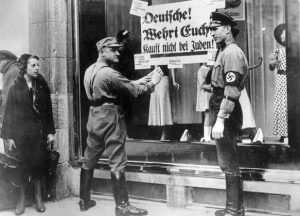
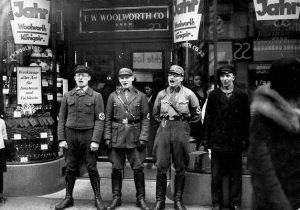
ensure that his plans were carried out, they did as they were told. It wasn’t long after the boycotting of the shops that Hitler took things to the next level, and began hauling the Jewish people to the death camps. As long as he was alive, there was no end to his hatred, and that is definitely not what President Hindenburg or the conservative German politicians had in mind, and I’m sure they wished they had never done it.
 Yesterday was National Holocaust Remembrance Day, I started thinking about all that happened to those poor victims of the Holocaust, and because yesterday was the day that the prisoners of Auschwitz were liberated, I began to contemplate what it must have been like for them as the exited that horrible camp. My guess is that their first thought was one of thankfulness that they had actually come out alive. Going into Auschwitz, I’m sure many had hopes that it would be just a camp for prisoners of war, and that they might be treated fairly, but as their friends began to disappear, never to return, I’m sure they knew to horrific truth. This was not a prisoner of war camp, is was a death camp, and the whole goal was to experiment, torture, and kill the prisoners. The people who worked there, were given authority to do as they pleased.
Yesterday was National Holocaust Remembrance Day, I started thinking about all that happened to those poor victims of the Holocaust, and because yesterday was the day that the prisoners of Auschwitz were liberated, I began to contemplate what it must have been like for them as the exited that horrible camp. My guess is that their first thought was one of thankfulness that they had actually come out alive. Going into Auschwitz, I’m sure many had hopes that it would be just a camp for prisoners of war, and that they might be treated fairly, but as their friends began to disappear, never to return, I’m sure they knew to horrific truth. This was not a prisoner of war camp, is was a death camp, and the whole goal was to experiment, torture, and kill the prisoners. The people who worked there, were given authority to do as they pleased.
As the prisoners were taken out of the camp, I’m sure there was a mixture of feelings…relief and guilt. Relief because they had lived through one of the worst atrocities in history…and guilt, because they had lived through one of the worst atrocities in history…while so many others did not. The guilt would have been horrible. Parents who made it out, while their children did not; children who made it out, while their parents did not. They were free, but homeless. They were weary, and many were sick or dying of starvation. The experiments performed on them probably left irreparable damage to their bodies and minds. I’m sure their thoughts were racing as the walked away from the worst time in their lives.
Their futures were uncertain. They didn’t know if they would be accepted in their home country, or if they 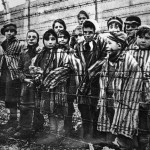 would have to immigrate to another country to find real freedom. And I’m sure that the worst thought was the possibility that it could happen again. Once something like the holocaust happened to a people, how could they possibly trust another nation again, and yet they would, because as horrible as the Holocaust was, there were many good people, and many good nations who were completely against the atrocities that happen during those years…people and nations who would never forget what happened. The Holocaust was an atrocity beyond the ability of most human beings ability to wrap their minds around, but it was something that was impossible to forget, for those who lived it. The horror they suffered would haunt them for the rest of their lives. It would be impossible to remove the nightmare they lived from their memory.
would have to immigrate to another country to find real freedom. And I’m sure that the worst thought was the possibility that it could happen again. Once something like the holocaust happened to a people, how could they possibly trust another nation again, and yet they would, because as horrible as the Holocaust was, there were many good people, and many good nations who were completely against the atrocities that happen during those years…people and nations who would never forget what happened. The Holocaust was an atrocity beyond the ability of most human beings ability to wrap their minds around, but it was something that was impossible to forget, for those who lived it. The horror they suffered would haunt them for the rest of their lives. It would be impossible to remove the nightmare they lived from their memory.

